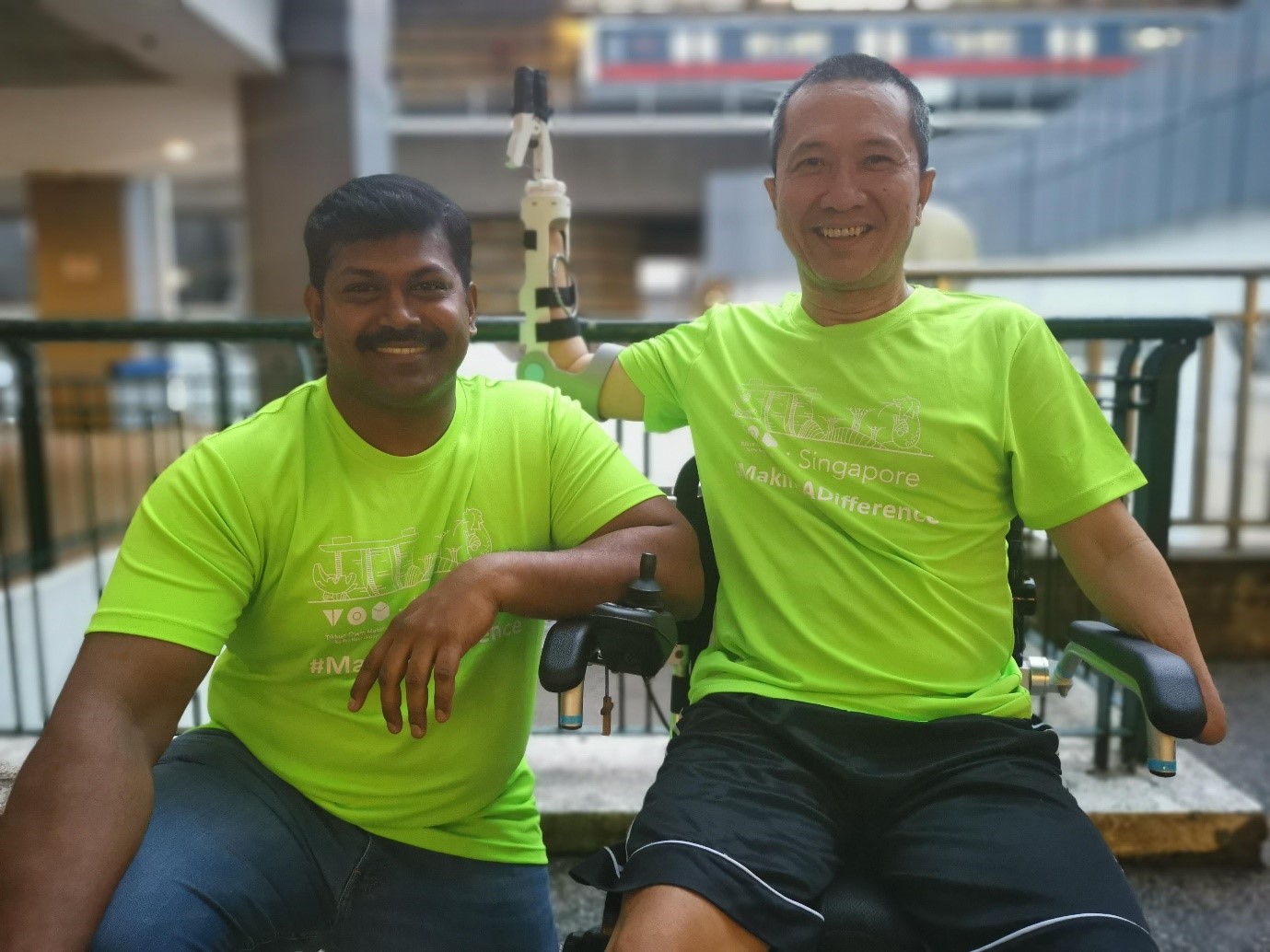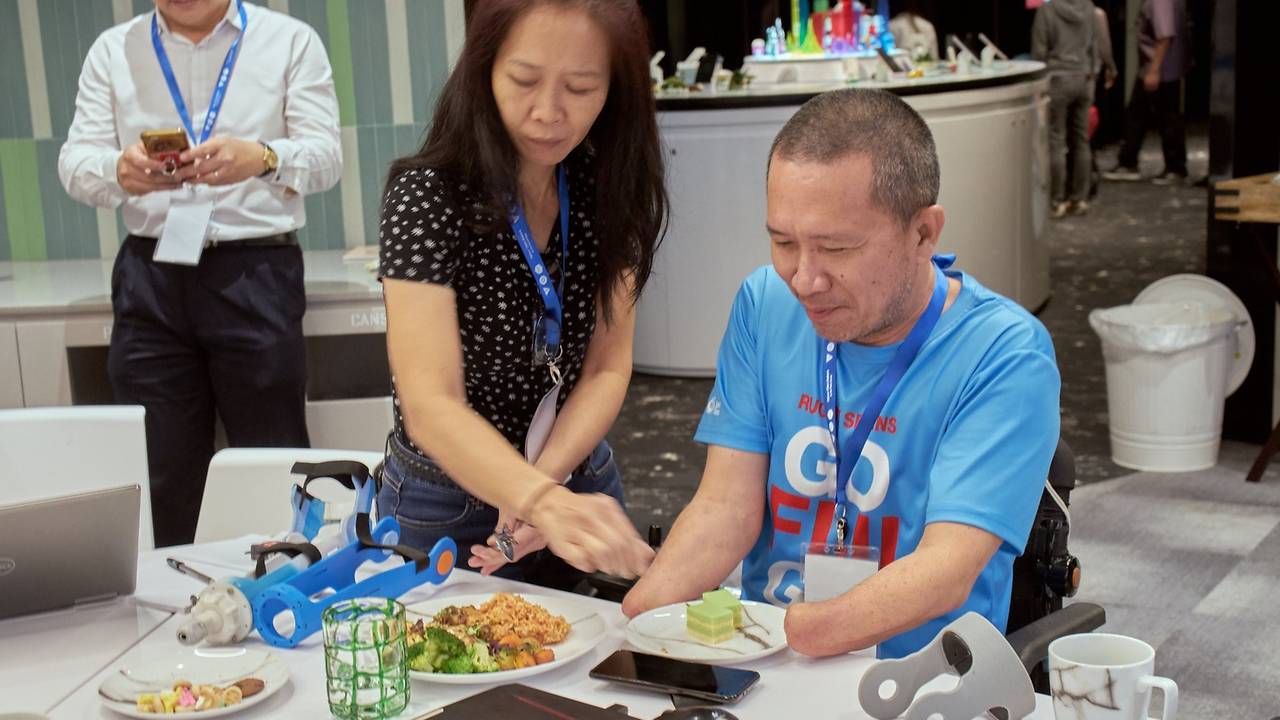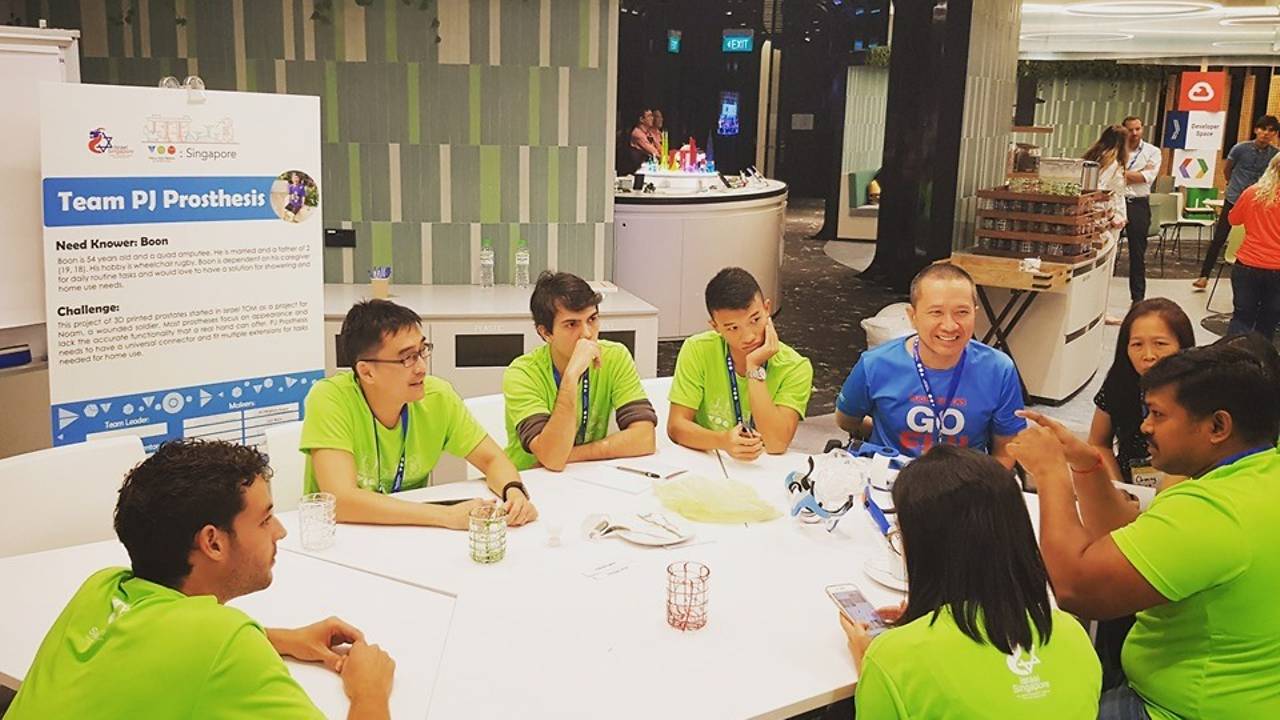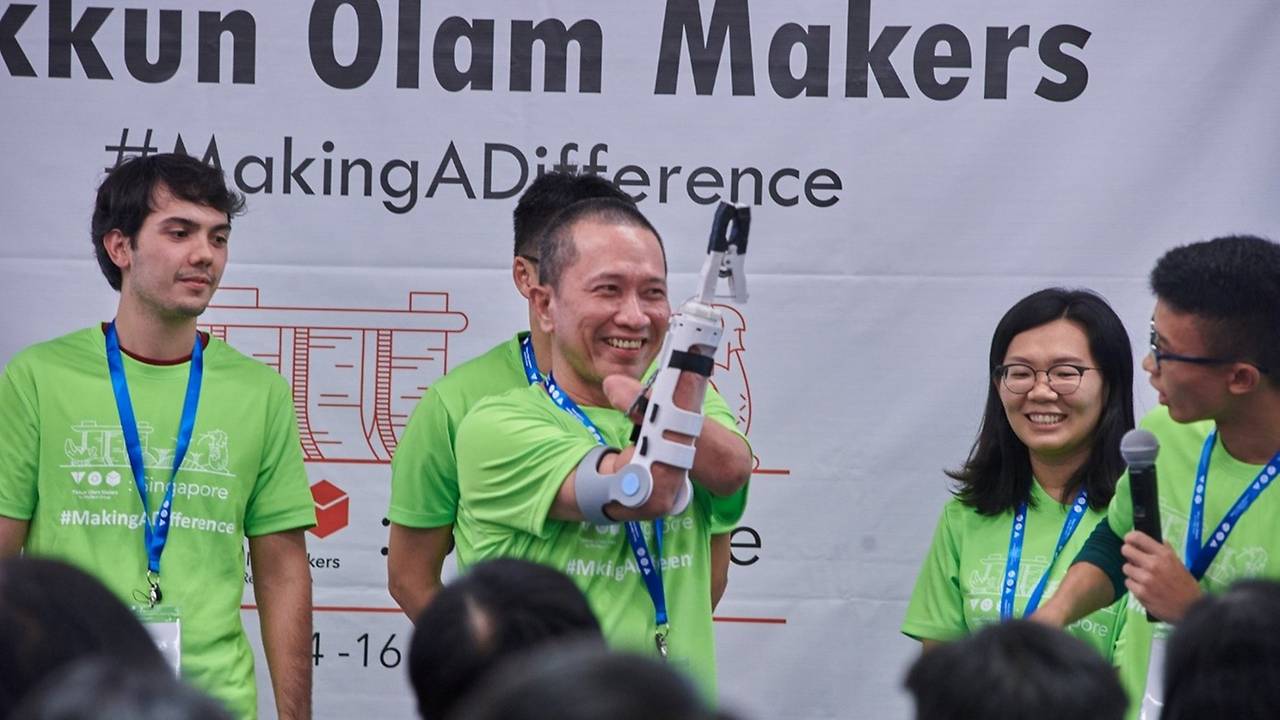
Theirs is an unlikely friendship. D J Saravana Kumar is a senior graphics designer at Fraunhofer Singapore. Tan Whee Boon is a quadruple amputee who lost his limbs as a result of a bacterial infection. They would never have met if not for an Israeli humanitarian project that became global.
A Real Need
Mr Tan has no hands and his legs end at mid-calf. A plate of yusheng, a raw fish dish, he ate in 2015 caused a near-fatal case of food poisoning that landed him in the Intensive Care Unit (ICU). Sadly, the drug that helped him fight the Group B Streptococcus (GBS) infection also caused gangrene to develop in all four of his limbs. Amputation was the only way to save his life.
Once a technician in the gas industry, Tan had to quit his job. Activities he used to enjoy – swimming and basketball – became impossible.
“Without hands and feet, I just sink,” he said ruefully.
While he did eventually learn to move around on a donated motorised wheelchair, feed himself with the aid of elastic bands his wife sewed for him and even type using a stylus pen, Mr Tan is far from independent.

“I can’t go out on my own for long because I can’t go to the bathroom without help,” he said.
For that, he relies on his wife Madam Choong Siet Mei, 52, who is now also his caregiver.
“She has to be with me 24/7,” said the father of two.
The logical solution to his difficulties would have been prosthetic arms, and though he did receive some from helpful donors, they all proved ineffective. One from the United States could not grip the water hose that would have enabled him to shower on his own. Another from Hong Kong took up to 15 minutes to put on even with help and was too heavy to really use.
A Community Effort
It is for people just like Tan that organisations such as Tikkun Olm Makers (TOM), Hebrew for “repairing the world”, exists. The global non-profit network brings together local communities, getting people to harness technology to solve everyday problems of those with special needs.
In June 2019, TOM organised its first MakeAthon in Singapore where 60 local and Israeli Makers from various walks of life and with different expertise came together to overcome the daily challenges of 15 Need Knowers living with disabilities.
Joining the community effort was Mediacorp Enable Fund (MEF) which raised $30,000 as the main sponsor. Community efforts like these that promote integration are very much in tandem with MEF’s belief that society needs to support inclusion and champion the cause of people with disabilities.
Over three days, the team that worked on Tan’s problem, Team PJ, laboured to design a prosthetic arm with a hand that could function like a real one. The six members, who had never met till then, comprised physiotherapist students, computer science researchers and a teacher led by Kumar who has 10 years’ experience in 3D modelling. Tan provided real-time feedback as the team worked, their common goal drawing them together.

“He was at the side cheering us on, he brought us life,” said Kumar, an Indian national who moved to Singapore with his family six years ago.
Added Tan: “Participating in the creation process was the best part of the whole experience because I felt like I had a part to play.”

In the end, the team came up with a prototype – a 3D-printed rotating prosthetic arm with a grabbing mechanism that could be worn without help. They were awarded a joint third prize as well as $2,000 for their effort.
A Solution at Hand
It has been more than six months since but the bond forged between Tan and Kumar during those intense three days is just as strong, and the commitment to give Tan a hand that works remains.
“He is still working on fine-tuning the prosthetic arm. We visit each other or he calls,” said Tan.
While the prototype could grip things, the grip was not firm enough. The next version improved on this but there was the issue of control.
“I could pick up the water hose but I couldn’t control it,” explained Tan.
The third try resulted in a prosthetic hand that had good grip and control but was too heavy. Kumar is not giving up, though.
“Previously, I would just spend my time playing games on my computer,” he said. “I wouldn’t know what to do with my spare time. Now I know what I want to do.”
This is creativity for a worthy cause. This is technology put to good use. This is community support at its very best.